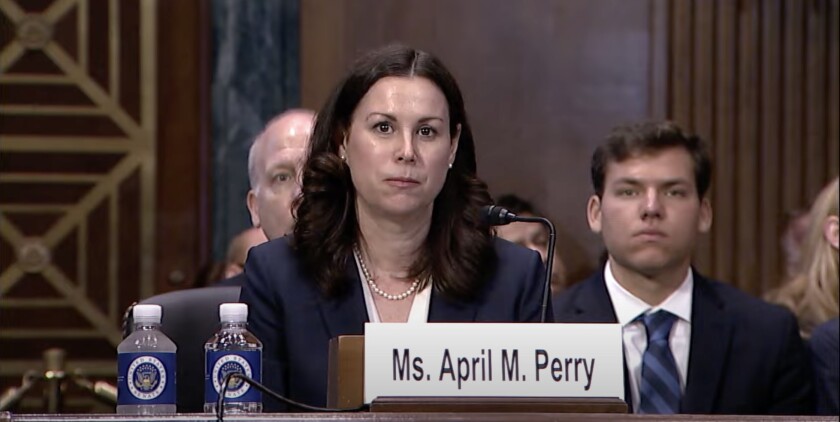Deployment of National Guard troops within Illinois remains blocked Saturday after the federal appeals court in Chicago met the Trump administration halfway.
The administration late Friday asked the 7th U.S. Circuit Court of Appeals to delay the effect of a ruling handed down Thursday by U.S. District Judge April Perry. She had blocked the Trump administration from “ordering the federalization and deployment of the National Guard of the United States within Illinois.”
Justice Department lawyers then asked the appeals court to intervene. In a one-page order Saturday, the court halted Perry’s ruling only when it came to the federalization of the National Guard. However, it left untouched the portion of Perry’s ruling blocking deployment of the National Guard.
The appeals court’s Saturday order is temporary, while it considers whether Perry’s ruling should be halted throughout the Trump administration’s appeal.
President Donald Trump’s lawyers had told the appellate court that Perry “impermissibly second-guessed the Commander in Chief’s military judgments — something district courts lack the authority and competence to do.”
She handed down her ruling after finding the administration’s “perception of events” around Chicago “are simply unreliable,” and she ruled that she had seen “no credible evidence that there is danger of rebellion in the state of Illinois” or that Trump is “unable … to execute the laws of the United States.”
Trump’s Justice Department filed a notice of appeal roughly six hours after Perry announced her ruling from the bench Thursday. But it did not ask the 7th Circuit to stay Perry’s order until a little after 9 p.m. Friday.
“In countermanding the president’s military judgment, the district court largely ignored the facts on the ground, relied on an improper … factual investigation, and rested on an adverse ‘credibility’ finding that had no basis in the record,” Trump’s lawyers wrote.
Lawyers for Illinois and Chicago responded Saturday morning, arguing that the Trump administration believes “that the federalization of the National Guard requires no explanation, identifiable scope, or provable factual underpinning.”
Illinois and Chicago sued Trump on Monday over deployment of National Guard troops to Illinois. By the time Perry ruled three days later, about 200 troops from Texas and 14 from California had already begun to arrive, joining about 300 federalized Illinois National Guard troops.
Texas National Guard members were spotted Thursday morning at the U.S. Immigration and Customs Enforcement facility in Broadview.
After Perry handed down her ruling, Illinois Attorney General Kwame Raoul was asked if he’d direct troops to leave the state. Raoul said it’d be up to the Trump administration “to abide by the judge’s order.”
“There’s a temporary restraining order that they should not be active within the state of Illinois,” he said.
Perry spent 80 minutes in court Thursday interrogating Eric Hamilton, the Justice Department lawyer who’s been defending deployment of National Guard troops across the country. Hamilton cited a “brazen new form of hostility” toward federal law enforcement and said it comes not from protesters but “violent resistance to duly enacted immigration laws.”
Perry told him there had been peace outside the Broadview ICE facility for 19 years, until federal border agents showed up this summer. She asked him if it mattered, under the law, if Trump’s claimed inability to execute federal law was by his “own provocation.”
Hamilton told her it did not.
“The fact still remains,” Hamilton told the judge, “that we are seeing sustained violence against federal personnel and property in Illinois.”
Perry tested the boundaries of Hamilton’s arguments, asked whether she should take Trump’s’ off-the-cuff remarks and social media posts into account, and said she struggled with Hamilton’s reluctance to set clear limits on the deployment.
“You have not committed that they are only going to be deployed at federal property or in support of immigration and customs enforcement,” Perry told Hamilton.
“I am very much struggling to figure out where this would ever stop,” she said.
Source link

